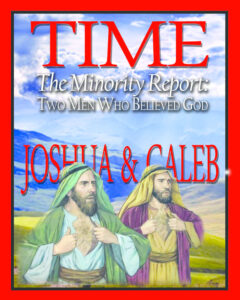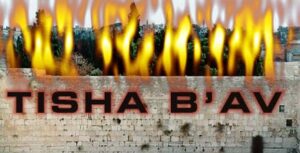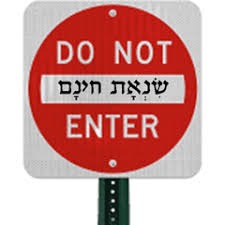Earlier this week, the heylige Ois and eishes chayil joined their dear friends Linda and Yossi Segel as they celebrated the vort of their granddaughter Rivka Segel who will be marrying Daniel Meyer, he the son of Yitzi and Nina Meyer. Rivka is the beautiful daughter of Esther and Eli Segel who the Ois has known since Eli was about five years old. A big mazel tov to the entire extended Segel family and may Rivka and Daniel merit to enjoy many happy years together.
So happens that we faced a real dilemma as we were about to enter the shul where the festivities were being held. As we approached, we noticed that the side door had a sign that read “LADIES’ ENTRANCE” while the front door sign read “MEN’S ENTRANCE, ober where was this real? What to do? Split up? Have the eishes chayil enter separately, or break the rules and enter with the heylige Ois? Was the vort to be held in separate rooms? The eishes chayil -ever the rule breaker- made a daring move and accompanied the Ois down two flights of stairs. And guess what? The side and front staircases both led into the same room where people stood and celebrated side by side and very near to one another. Mamish mixed eating and talking -say it’s not so, but that’s how it was. What these signs are meant to accomplish, ver veyst?


Baseless Hatred
A warm welcome -and very warm it’s taka been these last few days- to Sefer Devorim, or as the goyim refer to it, the book of Deuteronomy. What the hec is a Deuteronomy and why did someone give this book of the RBSO’s heylige Toirah an English name? Grada, the word Deuteronomy is not all English and was seemingly made up by the Greeks to properly translate another name given to Sefer Devorim by our sages. Indeed, Deuteronomy which means ‘Second Law’ comes from two Greek words -deuteros “second” + nomos “law.” And now you know. So happens that our sages named Sefer Devorim ‘Mishneh Toirah’ ober why? Shoin, we are taught that Devorim is a repeat of the mitzvis Moishe previously taught the Yiddin post their Sinaitic experience and during the ensuing 40-year midbar excursion. On the other hand, Sefer Devorim, as we will come to learn, contains new mitzvis heretofore never taught. Which statement is then correct? Is Devorim a repeat? Or, does Devorim contain new commandments? How can we call it a repeat when 200, kimat 33% of the mitzvis are brand spanking new? And the answer is both! How can that be? That’s none of your business! We don’t argue with our givaldige sages.
And since we’re talking names, efsher you recall hearing that Sefer Devorim is also known by yet another name. The heylige Gemora (Avoid Zoro 25a) tells us that this book is also known as ‘Sefer Hayoshor’, the book of the just. What’s just about it and why was it so named by our sages? Said Rebbe Eliezer (Avoido Zoro 25a), azoy: it’s poshit: in Devorim we come across this line- “You shall do what is just and good in the eyes of the RBSO.” Shoin. Case closed? Not! Why not? Because we come across a very similar instruction and quote back in Sefer Shmois (Exodus) which states, “You shall do what is just in His eyes.” Yet, Sefer Shmois kept its name while Devorim took on a new name? What’s taka pshat? Shoin, avada our sages and later exegetes were quite clever -zicher more than you and I- and said azoy: Not so fast wise guy! It’s taka emes that we come across a very similar quote over in Shmois (15:26), ober, the book of Shmois has but one sighting of this quote. Here in Sefer Devorim, we will come across this quote several times; several is zicher more than one. Meaning of course that more is more and seemingly better. Again, we repeat: more is more and whomever told us that less is more, was an idiot. Fartig. What’s more? Limoshol (by way of example only), when you put your pants in the morning and unexpectedly find $100 in your pocket, you are zicher happier, but logic dictates that if you find $200, you’d be even happier. Case closed!
Says the Mahrsho so gishmak mamish and something to repeat at the shabbis tish in conjunction with the regularly scheduled weekly local gossip and updates to any older gossip, azoy: Sefer Devorim, with its repeated message of doing what is ‘just and good’ in the eyes of the RBSO, is teaching us a givaldig lesson. We must strive to look beyond the minimal requirements of the halocho. Doing what is just and good in the eyes of the RBSO, efsher means that we are commanded to act with kindness and forbearing. Sometimes, we need to efsher override halocho, albeit temporarily, to do the right thing. Efsher to help a neighbor, friend, and even, -heaven forbid- a family member you cannot stand. Instead of sinas chinom (baseless hatred), efsher we need to dole out some ahavas chinom (free love). Shoin. Avada the Mahrsho does not cite all these examples and that’s why raboyseyee, the heylige Ois is here to add some color.
Parshas Devorim is also the time when yearly, the heylige Ois says goodbye and closes out yet another cycle of his givaldige and gishmake parsha reviews which have been entertaining and teaching hundreds of thousands for thirteen full years. Year fourteen begins with the Shabbis Nachamu review; well, blow me down. It all began with one reader. Who was that and how did it all begin? We will answer those questions next week when we once again review the origins of the Ois’s writings. Stay tuned.
Parshas Devorim will also give us one final chance to say goodbye to Kolave, a favorite Toirah hero whom we have discussed every now and then over the years. It does appear that the RBSO loved this man and he gets yet another givaldige shout-out this week. Everyone loves a nice shout-out; Kolave taka deserved his. More on him soon. Shoin, speaking of shout-outs, this week, Moishe is the forerunner of a behavior since emulated by kimat every married woman. Many years ago, a very famous rabbi, Rabbi Benjamin Blech, told the heylige Ois azoy: ‘when my wife becomes angry with me, she does not become hysterical. Instead, she becomes historical and instantly and maybe miraculously somehow recalls each and every indiscretion of mine since the day we met. Nothing is omitted.’ Is there a man reading this review who cannot relate? Not! As an aside, isn’t saying I’m sorry, or the passage of time, supposed to erase those past sins? And once closure has taken place, or enough time has lapsed, shouldn’t indiscretions -no matter their size or shape- be forever buried? They should. Are they? Not! In the book of Devorim, which unfolds in its entirety during the last 36 days of Moishe’s life, Moishe will be delivering three long orations, and will, using mostly veiled language and references, remind and admonish the Yiddin over past indiscretions. A few going back 40 years, yikes! Quite an impressive memory he did have as he was nearing his 120th birthday. Though Moishe will remind the Yiddin of their sins going back 40 years to the eygel (golden calf) caper and their unruly and questionable behavior regarding their complaints over their Munn food they were given -free of charge and delivered daily for 40 years- the main focus of Moishe’s speech in our parsha, is a rehash of the entire Miralgim (spy mission) fiasco and fallout which took place in year two which resulted in their having to spend an additional 38 years wandering the midbar. Zicher you recall that most of Sefer Bamidbar recounted all the troubles the Yiddin found themselves in during that time period. Bottom line: it was that spy mission which resulted in the decree that all males between the ages of 20 and 60, excepting avada our man Kolave and Yehoshua, would not live to enter the land. That decree would eventually be expanded to include Moishe himself. Moishe speaks about this incident which ultimately ensnared him at Mei Miriva, he is not a happy camper.

Back in Sefer and Parshas Shmois, we met baby Moishe who was born after his parents reunited – yes, they had seemingly been at least separated if not divorced- and who at age 80 -all this in one parsha mind you- was retained by the RBSO to head back to Mitzrayim from whence he had to flee decades earlier after killing one Mitzri. His job: to lead the Yiddin out of slavery and for the next 40 years. Not many get hired and remain active in the 80’s -shout out to the shver Irv Bader who is spending his 50th summer up in camp and who coaches basketball at 11PM several nights a week over at Turo College.
Was Moishe qualified for the job? A shepherd at the time -seemingly a resume builder for earlier Toirah heroes- and while out with the sheep, encountered the burning bush and shoin. Not the first to be smitten by one, if you chap. Nonetheless, the job was daunting and he needed convincing. He questioned his own credentials and argued against his appointment by stating more than once (Shmois 4:10) to the RBSO that he, Moishe, had a lisp, or some other form of speech impediment or disorder. The medrish filled in the gaps and told us Moishe’s disorder came about when the malach (angel) forced baby Moishe who was going for the gold, to instead pick up a piece of hot coal and place it in or near his mouth. Is that what happened, ver veyst? In any event, Moishe did use this lame excuse and tried recusing himself from the assignment. Ober, the RBSO was determined to have Moishe lead -speech impediment notwithstanding- and there he was. Exactly how his speech impediment may have affected his skills, we are not told.
Ober this week as Sefer Devorim begins, Moishe is kimat 120 years old. He is seemingly schedule to die on his 120th birthday and in our parsha, he is 36 days from away. He’s speaking very clearly. He will be talking all the way through Sefer Devorim until his own passing. He’s come a long way and has seemingly overcome his impediment. Ober how was he cured? Says the medrish (Devorim Rabbah1) so gishmak, azoy: it’s taka emes that Moishe had a speech impediment which plagued him for many years. Ober, as soon as he began learning the heylige Toirah, his disorder was cured. The bottom line: no reason to spend time and money on modern day speech therapies and or a therapist. The heylige Toirah seemingly cures many maladies. Learn the heylige Toirah and you too can be cured. Gishmak.
As mentioned above, our hero and overall good guy Kolave, is the beneficiary of yet another Toirah shout out this week. It unfolds when Moishe reminds the Yiddin that the RBSO had previously decreed that only he (Kolave) and Yehoshua would merit entry into the Promised Land. All other males between the ages of 20 and 60 at the time of the miraglim caper were doomed. In fact, here in our parsha, they have all perished. Moishe is speaking to the next generation and reminding them of what had transpired over the past 40 years. Though the words might differ ever so slightly, this is the third mention of Kolave and Yehoshua in the last several weeks. It’s also the third time we read the very same thing: only these two fine gentlemen will make it across the Jordan. Ober, didn’t our rabbis teach us, over and again, that the heylige Toirah does not contain any extra words? They did! The Ois regularly quotes our holy rabbis on this topic. What’s taka pshat here?

Avada we all know that Yehoshua was selected to follow Moishe as the next leader of the Yiddin. Ober, and so very interestingly and efsher even perplexingly, with each mention of these two outstanding men, Kolave’s name appears first and the praise heaped upon him is real, palpable, and effusive. He is the man. Mamish. In our parsha, the heylige Toirah (Devorim 1:36) tells us azoy: “Only Kolave ben Yifuneh shall see it, and to him shall I give the land he traveled.” There is no mention of Yehoshua in this verse. Kolave stands alone as the recipient of the RBSO’s recognition and praise. Yehoshua will be mentioned two pisukim later (Devorim 1:38). Was Kolave then a greater man than Yehoshua? And if so, why was Yehoshua selected to lead the Yiddin and not Kolave? Taka excellent questions and avada we don’t have any good answers. Then again, who are we to question the RBSO’s choice for leadership?
Ober, efsher we can kler azoy: Both Kolave and Yehoshua had unique qualities and each was loved by the RBSO. Both were selected to enter the Promised Land but maybe for different reasons. Kolave was selected because he mamish sanctified the RBSO’s name by defending His honor. He spoke up, he put his life in danger. The heylige Toirah specifically tells us (Bamidbar 14:24) azoy: “But My servant Kolave, because…he followed Me wholeheartedly”. Very similar wording “…..because he followed Hashem wholeheartedly” is found in our parsha.
Yehoshua was Moishe’s assistant, always at his side and was therefore readily available when Moishe’s successor needed to be selected. He knew the job description; he had been groomed by Moishe. Efsher he was at the right place at the right time. And let’s not forget that Yehoshua was but one of two who did (eventually) stand with Kolave against the miraglim. Ober, let us also recall that Yehoshua was selected for leadership despite the fact that only Kolave (back in Parshas Shelach) took the initiative to speak up against the miraglim who were bad-mouthing the RBSO’s Promised Land. Yehoshua was at first silent and only joined Kolave a few sentences later when they both rent their clothing. It would appear that his silence was a mark against his character, perhaps even considered a sin. Oib azoy (that being the case), efsher you’re wondering why Yehoshua was taka selected to lead the Yiddin?
Ober says the Oznayim LaToirah so gishmak, azoy: It’s efsher the case that Yehoshua was a bit tardy and did not immediately jump to defend the Promised Land and the RBSO’s honor. Perhaps this was his sin. Ober says the heylige Gemora (Yirushalmi Bikurim 3:3), azoy. “Three are forgiven for their sins: one who is appointed to a position of leadership, a proselyte, and a bridegroom.” By and with his selection, Yehoshua was forgiven and merited entry into the Land. He accepted responsibility for leading the Yiddin across the Jordan and to help fight for and apportion the land as directed. As an aside, given that bridegrooms get instant forgiveness, we can also chap why a good number of men keep getting divorced and remarried. Who knew they were driven by such lofty ideals?
The bottom line: the RBSO recognizes -at times over and again- those who stand up for His honor. And He will repeat praises and shout-outs in His heylige Toirah to teach us this lesson. Kolave was the man, he stood up. The RBSO might be telling us azoy: there are times in life when we may have the opportunity to stand up, to say and do the right thing, even though the mob around us may be speaking differently and may not want to hear what has to be said. If it involves defending the RBSO, the land of Israel, and mistama also people who are falsely maligned, the sole voice will be recognized by Him and singled out for praise.

Let’s close with this: When Parshas Devorim is read, Tisha Be’ov, efsher the saddest day in our entire calendar, is not far behind. This year, Tisha Be’Ov will fall on a Thursday, one week from today and it’s just about time -and maybe even a bit late to begin thinking about Shabbis Nachamu which evokes great memories of our single days dancing in the pink elephant lounge over at Grossinger’s, and or other hotels that dotted Routes 42, 52 and 17. Those were the days.
And since it’s been close to two thousand years since we lost the Temples, let’s taka take a minute and reflect on them and why the Yiddin lost them. We should also reflect on structures that were lost in the past 30 years to include The Pioneer, The Pine View, The Concord, the Caribbean, The Saxony, The Crown, and others where we enjoyed our single days.

Says the heylige Gemora (Yoma 9b) azoy: the first Temple was lost because the Yiddin of that generation were guilty of three sins. Which one’s? The big ones! Adultery, murder and idol worship. A trifecta mamish. You all avada know how upset the RBSO can get when but two of these are combined, ober all three? Yikes! Shoin, that first Temple was gone. Ober what happened to the Second Temple? Weren’t we taught that the Yiddin of that generation were better behaved and did not participate or violate these cardinal sins, at least not all three? We were. What went wrong is azoy: that generation was seemingly guilty of ‘sinas chinam” (baseless hatred for no apparent reason) towards one another. Says the heylige Gemora so gishmak, azoy: seemingly the aveyro (sin) of sinas chinam, is worse than the combination of the three cardinal sins which destroyed the first Temple. Mamish? Is it fair to equate them? Is sinas chinam worse than adultery? Who knew? Worse than murder or idol worship? And given the choice of violating one of them, should one select adultery because it’s not as giferlich as sinas chinam? Avada not and zicher not this time of year as we approach Yom Kippur when we need to ask for the RBSO’s forgiveness. And noch a kasha (one more question): Isn’t it emes that but 70 years passed from when the first Temple was lost and its replacement was erected? It is. And isn’t it also true that nearly two thousand years have passed since we lost the second temple mamish as a result only of sinas chinam? It is. Shtelt zich di shaylo (the question arises), azoy: was the sin of sinas chinam so severe to have caused the Yiddin to be without a Temple for this extended period of time? Answers anyone?
Efsher it’s our tafkid (mission in life) to overcome sinas chinam. Though -in our minds- we justify why we dislike or even despise certain people -even those that never did us any harm- efsher it’s our challenge to realize that perhaps our feelings are unjustified. And perhaps that’s why the Moshiach is not here nor coming any time soon. Without him, the third Temple will not be built or even fall out of the sky ready-built. On the other hand, It’s how we are programmed; efsher we need attitude adjustments, ver veyst?
As to why the various hotels we enjoyed -and where there was plenty of ahavas chinam, if you chap- all went under, ver veyst?
A gittin Shabbis-
The Heylige Oisvorfer Ruv
Yitz Grossman
